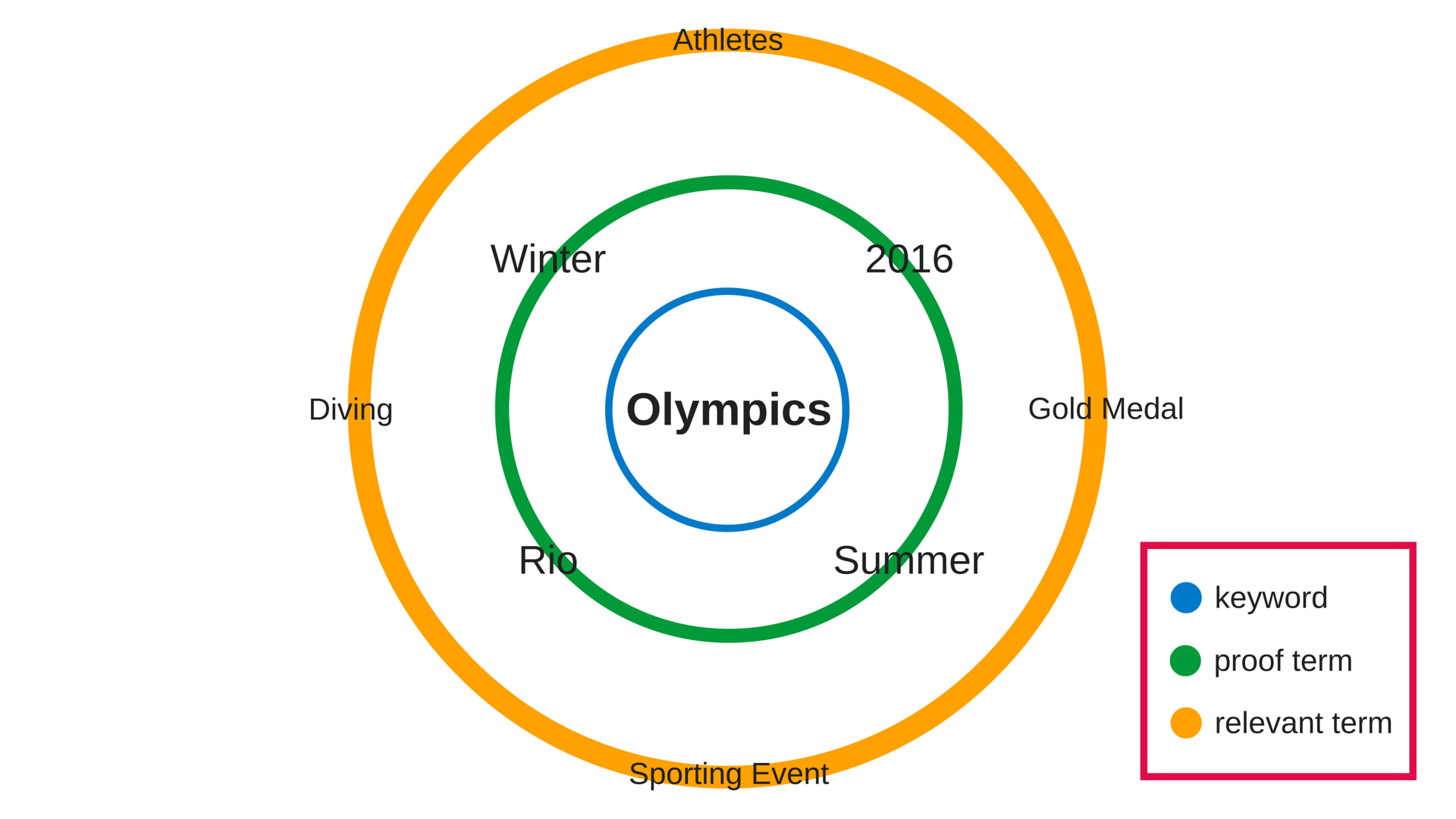As SEO shifts toward more complex algorithms and holistic ranking factors, keywords are falling rapidly from the top of the search signal heap. The 2015 Search Ranking Factors and Rank Correlations report from Searchmetrics – which analyzes the value of each ranking factor in the average top 30 results of a Google search – confirmed that “the significance of the factor ‘keyword’ continues to decline heavily in most sectors.”
Keywords in the body:
- The average number of keywords in top results did increase slightly.
- Searchmetrics attributed that to an overall increase in the length of top results rather than the keyword usage itself.
- The top five results had far fewer keywords than the rest.
Keywords in the description:
- Roughly 60 percent of top 10 ranking results contained keywords within the description.
- Searchmetrics noted this was low enough to be considered a negative factor.
Proof and relevant keywords:
- Focus on holistic content led to a major uptick in the proof and relevant terms that surround core keywords.
- Proof terms are faring better than relevant terms, likely because the latter are one step further removed from core keywords.

Keywords in links:
- The number of top-ranking landing pages containing keyword-related internal links dropped slightly.
- Having keyword-heavy internal links tends to be most prominent for results in the third position.
- External links containing a keyword are significantly less prominent for the top five results, but have also fallen across the board.
Keywords in the domain:
- These appeared in just 6 percent of top 30 page rankings in 2015, down from 9 percent in 2014.
A supporting SEO role for keywords
The need to actively include keywords in your content is all but gone. When you look at them as a tool to sharpen and refine your content, however, they will naturally appear within your writing. This organic inclusion is how keywords will continue to contribute to SEO efforts, but it is becoming a much more passive part of the creative process.
Well-written content will inherently include keywords that help Google crawl and index results based on what users are searching for.
“Keywords are a natural part of content but are not significant without relevant content and a logical context.” – Searchmetrics 2015 Search Ranking Factors and Rank Correlations report
What you don’t want to do is look at your arsenal of words and phrases and think, “I need to include one of these in the title, another in the intro and three more in the body of the article.” Given that Searchmetrics indicated keyword usage is almost universally down across the board for top-ranking content, adopting a different stance on creation may prove more useful.
How keywords benefit your content strategy
Keep your content focused.
Each keyword on your list is like a bucket. Your content should always fall into at least one bucket. If it doesn’t, you might want to evaluate the reason you want to write on that topic. Do you need to scrap the idea or revisit your keyword list?
Research topic ideas.
Consider keywords as seeds. When you plant them into a search engine, they will branch out into various results that can lead you to new ideas for content direction, unexplored topics and breaking news in your niche. This is especially helpful when you’re working with digital marketing agencies, as it can give your agency a way to more easily explore what’s already out there in your niche. In turn, they will be able to develop better content for you that will cut through the noise and find your audience.
Analyze your competition.
Study your competition’s playbook and learn their moves. Find out how they rank for the keywords you’re already using, and what they rank for that you don’t. If your main competition ranks higher for a certain keyword than you, it might be worth finding new ways to create content around that idea.
Broaden your strategy.
There is a direct correlation between using proof and relevant terms and ranking higher in search, and that relationship is only growing stronger, according to Searchmetrics’ report. Thanks to semantic search, you can find out what words are linked to your core keywords and begin to incorporate them into your holistic strategy as well. These outlying words can broaden the scope of your strategy by leading you in new directions and possibly even revealing hidden opportunities or inspiring innovative projects.




